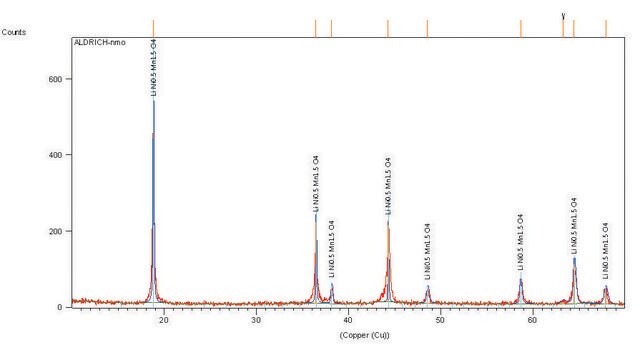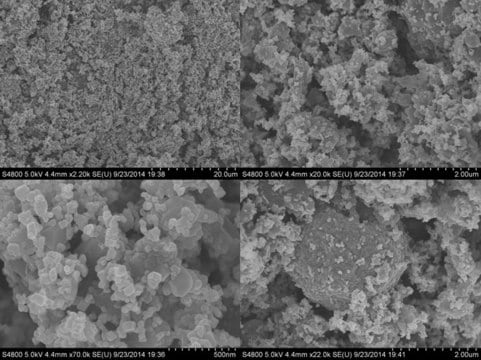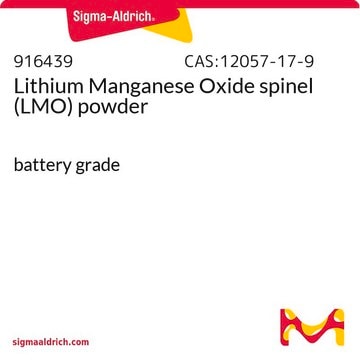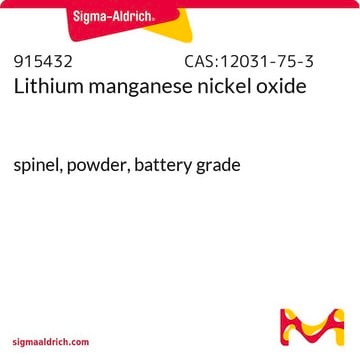765163
Lithium nickel manganese cobalt oxide
electrode sheet, aluminum substrate, size 5 in. × 10 in.
Synonym(s):
NMC
About This Item
Recommended Products
grade
battery grade
Quality Level
description
Nominal Voltage: 3.5 V, Li/Li+
composition
loading, ≥80%
greener alternative product characteristics
Design for Energy Efficiency
Learn more about the Principles of Green Chemistry.
sustainability
Greener Alternative Product
extent of labeling
≥80% loading
size
5 in. × 10 in.
thickness
16 μm
particle size
8-12 μm (typical)
capacity
150 mAh/g(minimum)
mp
>1000 °C
application(s)
battery manufacturing
greener alternative category
General description
Application
Other Notes
Operating Conditions:
- Recommended maximum charge voltage: 4.4 V vs Li/Li+
- Recommended maximum charge current: 1C
- Recommended cut-off voltage for discharge: 2.7 V vs Li/Li+
- Recommended maximum discharge current: 1 C
- Recommended charge method: constant current - constant voltage
Signal Word
Warning
Hazard Statements
Precautionary Statements
Hazard Classifications
Carc. 2 - Skin Sens. 1
Storage Class Code
13 - Non Combustible Solids
WGK
WGK 3
Flash Point(F)
Not applicable
Flash Point(C)
Not applicable
Choose from one of the most recent versions:
Certificates of Analysis (COA)
Don't see the Right Version?
If you require a particular version, you can look up a specific certificate by the Lot or Batch number.
Already Own This Product?
Find documentation for the products that you have recently purchased in the Document Library.
Customers Also Viewed
Articles
Professor Qiao's review explores stable microstructures for lithium metal fluoride batteries, advancing energy storage technologies.
Solid oxide fuel cells and electrolyzers show potential for chemical-to-electrical energy conversion, despite early development stages.
Li-ion batteries are currently the focus of numerous research efforts with applications designed to reduce carbon-based emissions and improve energy storage capabilities.
The critical technical challenges associated with the commercialization of electric vehicle batteries include cost, performance, abuse tolerance, and lifespan.
Our team of scientists has experience in all areas of research including Life Science, Material Science, Chemical Synthesis, Chromatography, Analytical and many others.
Contact Technical Service















